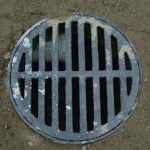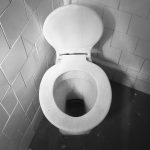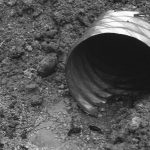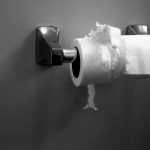The plumbing pipes run throughout your home like a circulatory system, and they have a tough job. When you consider the high volume of water that you use every day for a wide variety of tasks, you can start to understand the potential scale of the problem. This situation is further exacerbated if you have hard water issues that lead to the accumulation of scale inside the pipes. Let’s take a closer look at the issues surrounding plumbing pipe health in a little more detail.
Plumbing as a Circulatory System
Home plumbing is a network of pipes and fixtures that moves the water around our homes. Pipes bring fresh water into the home, and drains and sewer lines remove waste and wastewater. Healthy plumbing pipes are free and clear; the water and material move easily through them efficiently. But, most homes receive hard water, which contains higher concentrations of calcium, magnesium, and sometimes iron.
This mineral content is dissolved; you cannot see it because water is an effective solvent, and it can dissolve many materials that it pass through. This mineral content accumulates as limescale over time, and this hard material will narrow the diameter of your pipes. Over time, the pipes will become brittle and corroded and more prone to pinhole leaks and failures. Hard water can have other detrimental effects; it can cause damage to appliances and shorten their useful lifespan leading to an earlier than expected replacement.
3 Signs of Unhealthy Plumbing
Hard water issues are not a direct threat to your health, but they can cause a lot of problems in your home. Let’s take a look at three signs that you may have an unhealthy plumbing system.
- Lower Water Pressure
As the scale becomes thicker, the diameter of the pipes will narrow, leading to a drop in water pressure. Watch out for signs of white chalky limescale material on your plumbing fixtures, which will confirm your suspicions.
2. Repeat Clogging Issues
Any plumbing system can develop clogs on occasion, and they can usually be removed with a simple cup plunger. Manual removal is always preferable because caustic drain cleaning products can damage your pipes. But, if the clog is persistent and returns regularly, your pipes may be clogged with scale. Some sections of pipe can be replaced to improve the situation, or you may need a plumbing pipe upgrade.
3. Appliances Fail Frequently
Limescale can clog up the pipes inside your water using appliances leading to failure. It also accumulates on the surface of your heating elements, which causes a loss of efficiency inside your water heater, washing machine, dishwasher, and others. The appliance may need frequent repairs, and ultimately it’s more likely to fail earlier than your anticipated leading to an expensive replacement.
What is the Solution?
If you want to diagnose if you have a healthy plumbing system at your home, contact your local plumber today.
By Giovanni Longo President Flood Brothers Plumbing
Giovanni Longo is a 3rd generation master plumber who has been practicing his craft and trade in the greater Los Angeles area for well over a decade and a half. A plumbing and hydraulics-engineering innovator, Giovanni’s particular world-class expertise focuses on dealing with challenging sewer system designs as well as resolving complex commercial and residential draining issues. As a certified Flood Mitigation expert, he is also well versed in a wide variety of water damage and remediation solution.





